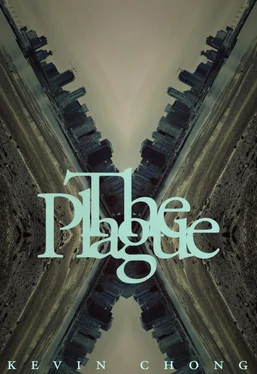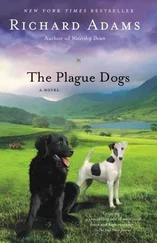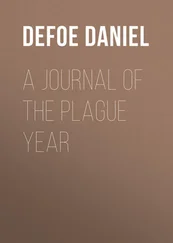His eyes stopped smiling first. When they reached the top landing, he hung his head down, nodded hello, and then dashed down the stairs.
Before Tso could wonder aloud about Khan’s peculiar behaviour, Oishi told them that they knew each other. “I thought his name sounded familiar,” he said.
Oishi explained that he had met Khan during a trial. Khan had had run-ins with the law since he was a teenager and served time in youth detention centres for drug offences and stolen property. When he came into Oishi’s courtroom, he was charged with possession for the purpose of trafficking over half a million dollars of cocaine. Crown prosecutors offered him a lower sentence—one that meant he was out the door with time served—in exchange for testimony that led to the arrest of his boss.
“We’re not talking about high-level gang leaders, but a bunch of kids who were in over their heads,” Oishi explained. “If this boss was a pro, Khan would have been dead years ago. There’d be bullet holes in his windshield, and no one would care—because he deserved it.” Instead, a young wannabe was given the task of killing him soon after his release. He was supposed to be at a party. “This so-called hitman shot someone who happened to be wearing the same shoes,” he said. “What a waste. He was innocent. He was someone’s kid.”
Tso didn’t spend much time at Grossman’s after-party. There were too many sad stories swirling in her head. She returned to Izzy Grossman’s apartment and tried to fall asleep on the couch.
In her book she’d written about the need to ascribe meaning to death. She had come to the conclusion that only heroic firefighters and villainous terrorists authored their own meaningful demises. For everyone else, a full, well-lived life could be undermined by a painful or abrupt exit. Survivors scrambled to give meaning in these moments. They would say that someone who died after a long struggle with terminal cancer used their end of life to demonstrate grace and courage. If a ninety-year-old man died while rock-climbing, loved ones could speak about his passion for the sport. But in the past three months, Vancouverites had faced deaths that resisted meaning. People died prematurely, painfully, and for no reason. At least this suffering happened collectively, and survivors could take comfort in one another. But even in this ocean of collective anguish, there were people who felt lonely in their pain.
Megan was woken early the next day by two police officers. She was asked to identify the body of a man who was killed the previous night in a traffic accident on Denman Street. The victim was described as a Caucasian male in his late twenties or early thirties with light brown hair and blue eyes and a “trumpet-like symbol” tattooed on his right bicep—Markus was a Thomas Pynchon fan. He died without identification. Among his possessions was an address book with her name and the hotel that she had checked out of weeks earlier. The front-desk clerk at the hotel who knew that Tso had often shared meals with Oishi called the judge in his room. She didn’t hear the voicemail that Oishi had left for her until she grabbed her phone on the way out the door.
“Did he run into traffic?” Tso asked the police officer. She had never taken Markus’s talk of suicide seriously. It felt like a scare tactic.
“I don’t know the details,” the officer replied. “But there were witnesses at the intersection. And the death is being treated as accidental.”
Tso wanted time to clear her head. The police officers insisted on driving her to the morgue at Vancouver General Hospital. She threw on her coat over her pyjamas and stepped into the back of the police cruiser. The morgue, one officer explained, was functioning at full capacity, so the city was doing its best to dispatch bodies.
The night before, she had dreamed that she’d seen Markus on the street and run after him on the icy sidewalks near the hotel. The faster she ran after him, calling out his name, the more desperate he seemed to evade her. The dream ended with the policeman’s knock on the door. If it hadn’t, would she have chased him blindly into traffic?
At the morgue, she was taken to a room decked out with Haida art and boxes of Kleenex on a coffee table. A grief counsellor entered the room and explained that Tso would not need to see the body herself. “This isn’t like TV shows,” she explained. She held a clipboard with a picture of the deceased and placed the picture on the table face down. Tso turned the picture over immediately and saw that half of his face was swollen and bloodied. The other half—the right side—was the one she had seen for the better part of two years, snoring peacefully, when she woke first.
“Do you recognize this face?” the grief counsellor asked.
“I do,” she told her. “We lived together in California. We were engaged. He was used to driving. He was a lousy pedestrian. Like me.”
How did this happen? He had spent so much time torturing her. Just yesterday he was postering the city in search of her. And then he was gone—like that. Suddenly, ambiguously, randomly. She was released from him. She didn’t know whether she now felt broken or had already been broken. She had broken herself to keep from being irreparably destroyed.
She last saw Markus alive at a reading in West Hollywood, a year earlier. He interrupted the event with his accusations and she had to stop making public appearances in Los Angeles for that reason. Still he had no trouble finding her; they had friends in common. Tso didn’t move out of the city. He would find out where she lived but stop short of confronting her.
He preferred to leave reminders instead. This was his final reminder.
And this was how Tso overlaid meaning onto a traffic-accident casualty amid a pandemic.
When Romeo Parsons joined the Sanitation League, three of its volunteers had already contracted the illness. One died as a result. Parsons was well aware of the risks involved. But when he started to exhibit symptoms in February, he didn’t believe that he was ill. He had taken the vaccine, which had been remarkably effective. The drop in new infections and fatalities in the last week dispelled any notions that the disease was merely having an “off” week. The disease had finally been throttled. Knowing that, Parsons didn’t feel he could have contracted anything worse than a cold. He continued his work as usual.
Parsons put in tireless shifts for the Sanitation League. He mopped vomit from the floors of infected homes. He rocked to sleep a colicky infant whose mother was ill. He did his work as quietly as possible. He kept his face mask on and wore contact lenses instead of his signature glasses. When he was recognized, he posed in selfies and offered hugs to those who wanted them—they often did. Many of these admirers wanted to absolve Parsons of his transgressions. You’re a good person. It wasn’t your fault. You had a sickness. It wasn’t your fault like it wasn’t my fault I got bitten by a diseased flea.
“It was a set-up,” one woman said, after insisting to Parsons and Rieux that they eat her cookies. She had lost her husband right before the New Year and needed help donating his clothes to the Salvation Army. “Your enemies put her up to it.”
The mayor accepted these kind but patronizing words stoically, like a donkey accepting lashes to his hide.
Parsons was outside this woman’s house when he told Rieux that he needed to sit down. The woman lived near Commercial Drive, and her house faced a park that was filled with men playing bocce ball in the summer. Rieux pulled the mayor’s arm over his shoulder and led him to a park bench. Parson’s face was hollowed and clammy. Only minutes earlier, he had been joking with the woman, whom he’d started to called “Cookie.” He was a nicknamer. He had pet names for his staff and people he was comfortable around. He hadn’t given many nicknames out since his scandal. He still addressed Rieux as “Doctor.”
Читать дальше












